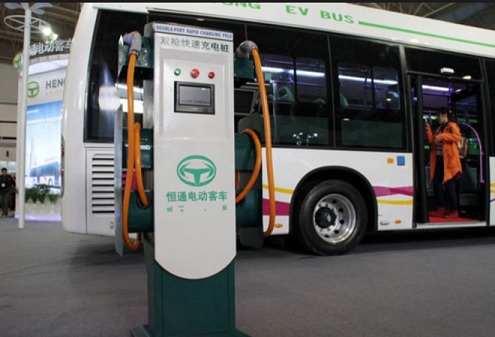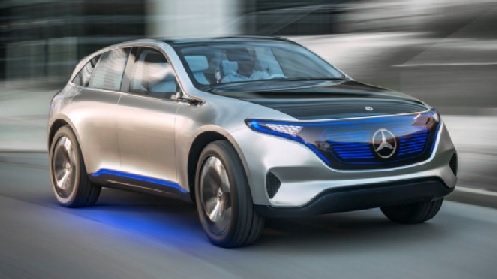China joins global trend: China is becoming one of several countries stopping fossil-fuel powered vehicles on its roads. Xin Guobin, the country’s vice minister of industry and information  technology, announced in a speech Saturday that regulators are working on a timeline for phasing out the sales and production of the gasoline- and diesel-powered vehicles. Norway, France, and the UK, are already going in that direction. Almost 80 percent of the global auto market is heading toward an eventual phase-out of petroleum-powered cars through government incentives and mandates. It’s a big job – with about 695,000 of 84 million new vehicles sold last year being electric; and with about a billon vehicles out on roads across the world now.
technology, announced in a speech Saturday that regulators are working on a timeline for phasing out the sales and production of the gasoline- and diesel-powered vehicles. Norway, France, and the UK, are already going in that direction. Almost 80 percent of the global auto market is heading toward an eventual phase-out of petroleum-powered cars through government incentives and mandates. It’s a big job – with about 695,000 of 84 million new vehicles sold last year being electric; and with about a billon vehicles out on roads across the world now.
Ford Transit Custom PHEV tested in London: Fleets took a look at the Ford Transit Custom plug-in hybrid van in the Cenex Low Carbon Vehicle 2017 event in Millbrook, UK. Ford will be testing 20 of these vans with fleets over a 12-month trials starting later this year. It will go 31 miles on battery only and 310 miles on electric and its 1.0-liter EcoBoost gasoline engine. It’s supported by the Transport for London agency with the Metropolitan Police and several city-based companies participating in the trial. “Seeing the PHEV Transits on the road is an exciting milestone, and we look forward to teaming up with our London partners and customers to explore how these vans can reduce emissions and operator costs in the city,” said Mark Harvey, Director, urban electrified van program, Ford of Europe.
Daimler cutting costs to make EVs profitable: Daimler wants to cut production costs 4 billion euros ($4.8 billion) by 2025, and will channel funds into developing and manufacturing electric cars. CEO Dieter Zetsche and Frank Lindenberg, VP of finance and controlling Mercedes-Benz  Cars, only expect to see half the profit margins now for EV compared to conventional internal combustion engine vehicles. That could break even, and EVs more price competitive, by 2025. Seeing battery prices come down will be a big part of it. More specifics were given on its electric fleet introductions – by 2022, there will be an electric version of every Mercedes model sold. It will be led by the new EQ electric brand, which Mercedes-Benz is overseeing. The Smart brand will stop selling vehicles with any internal combustion engines in 2020.
Cars, only expect to see half the profit margins now for EV compared to conventional internal combustion engine vehicles. That could break even, and EVs more price competitive, by 2025. Seeing battery prices come down will be a big part of it. More specifics were given on its electric fleet introductions – by 2022, there will be an electric version of every Mercedes model sold. It will be led by the new EQ electric brand, which Mercedes-Benz is overseeing. The Smart brand will stop selling vehicles with any internal combustion engines in 2020.



